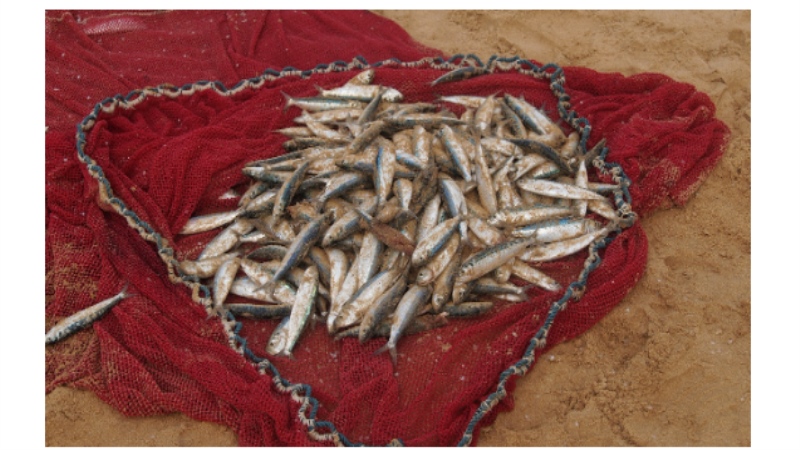Whether you’re looking for new fishing nets or used fishing nets for sale, fishing nets are a popular and practical way to catch fish, but they can be dangerous if used incorrectly. Learning how to use a fishing net responsibly is an important part of being an ethical angler. In this blog post, we will discuss the do’s and don’ts of using a fishing net so that you can make sure you are fishing in a sustainable and responsible way.
Follow the law
When using a fishing net, it is important to be aware of the laws and regulations in your area. In some places, it may be illegal to use certain kinds or sizes of nets or to fish in certain areas. Make sure you obtain any required permits before using a fishing net.
It is also important to stay within the bag limits that are set in your area. Most jurisdictions have limits on the number of fish you can catch with a fishing net, as well as restrictions on what types of fish can be caught with the net.
Using a fishing net responsibly means being aware of the laws and regulations in your area and following them closely. Doing so will help to protect the environment and ensure the sustainability of fisheries for future generations.
Use the right size and type of net
When using a fishing net, it’s important to select the right size and type of net for the fish you’re targeting. You don’t want to be using a net that is too small or too large, because it won’t be effective in catching your intended fish. Similarly, some types of nets are more effective than others when it comes to specific species, so be sure to research what type of net will work best for your target species.
If you’re using a cast net, the size of the net will depend on the size of the fish you’re targeting as well as the depth of the water. Generally speaking, cast nets come in sizes ranging from 3-16 feet and should have mesh size of 3/8-1/2 inch. For hand nets, make sure you have a mesh size small enough to keep the fish from slipping out.
Be mindful of the potential for unintended bycatch when choosing a fishing net. Use a fine mesh net if you’re trying to avoid catching smaller fish or juveniles. As much as possible, try to pick a net that will catch only the target species so that you can practice responsible fishing.
Check the condition of the net regularly
It’s important to check your fishing net regularly for any signs of damage or wear and tear. Be sure to look for holes, frayed edges, or tangled lines that could compromise the effectiveness of the net. Make sure all the components are securely fastened and replace any missing or broken parts. Additionally, inspect the net after each use and make sure to clear away any debris, such as fishing line or other items that may have been caught in the net. When storing the net, be sure to hang it so that it is not exposed to the elements and will be ready for use when you need it again. Finally, it is a good idea to periodically rinse the net in freshwater, which will help remove any salt residue or dirt. Doing this will not only help keep the net in good condition but will also help prevent the spread of invasive species or diseases.
Dispose of the net properly
When disposing of your fishing net, it’s important to make sure you do so responsibly. Depending on the type of net, you may need to take extra precautions.
For nets made of nylon, synthetic, or other modern materials, you should consider recycling the net. Check with your local waste disposal company for any available recycling options.
If your net is made from natural materials such as cotton, hemp or jute, then you should consider composting it. Make sure to follow the instructions for proper composting of the material, as incorrect disposal can cause environmental issues.
Finally, if you are disposing of a non-biodegradable plastic fishing net, make sure to check with your local government for any regulations on how to safely dispose of it.
Old fishing nets should never be thrown into the water. Improperly discarded fishing nets can continue to needlessly entangle marine life and contribute to aquatic pollution. If you need to dispose of an old net, make sure to do so responsibly. Find a local organization or business that will recycle your old fishing gear and properly dispose of it.
Don’t leave the net unattended
Leaving your fishing net unattended can be a major safety hazard. Not only does it put the fish in your net at risk, but it can also be a danger to other people and wildlife. When you leave a net unattended, animals may become entangled in it, causing them unnecessary suffering and harm. In addition, someone may come along and steal or damage the net, or take off with any fish that you caught in the net.
Don’t throw the net
Throwing a fishing net into the water is not only dangerous and damaging to the environment, but it also defeats the purpose of fishing. Throwing a net can lead to entanglement with underwater plants, coral reefs, and animals, creating a dangerous situation for both the animals and the fishermen. Additionally, throwing a net can cause permanent damage to the ocean floor, which can take a long time to recover. Instead, use it properly by casting it out, bringing it back in, and then storing it until it’s used again.
Conclusion
Fishing nets are a great tool for anglers, but they need to be used responsibly in order to protect the environment and ensure a sustainable future for fishing. Always do your research and follow the law, use the right size and type of net, check your net regularly, and dispose of it properly. Do not leave your net unattended or throw it, as this can harm the environment. With the right knowledge and respect for the environment, you can help ensure a sustainable future for fishing.

